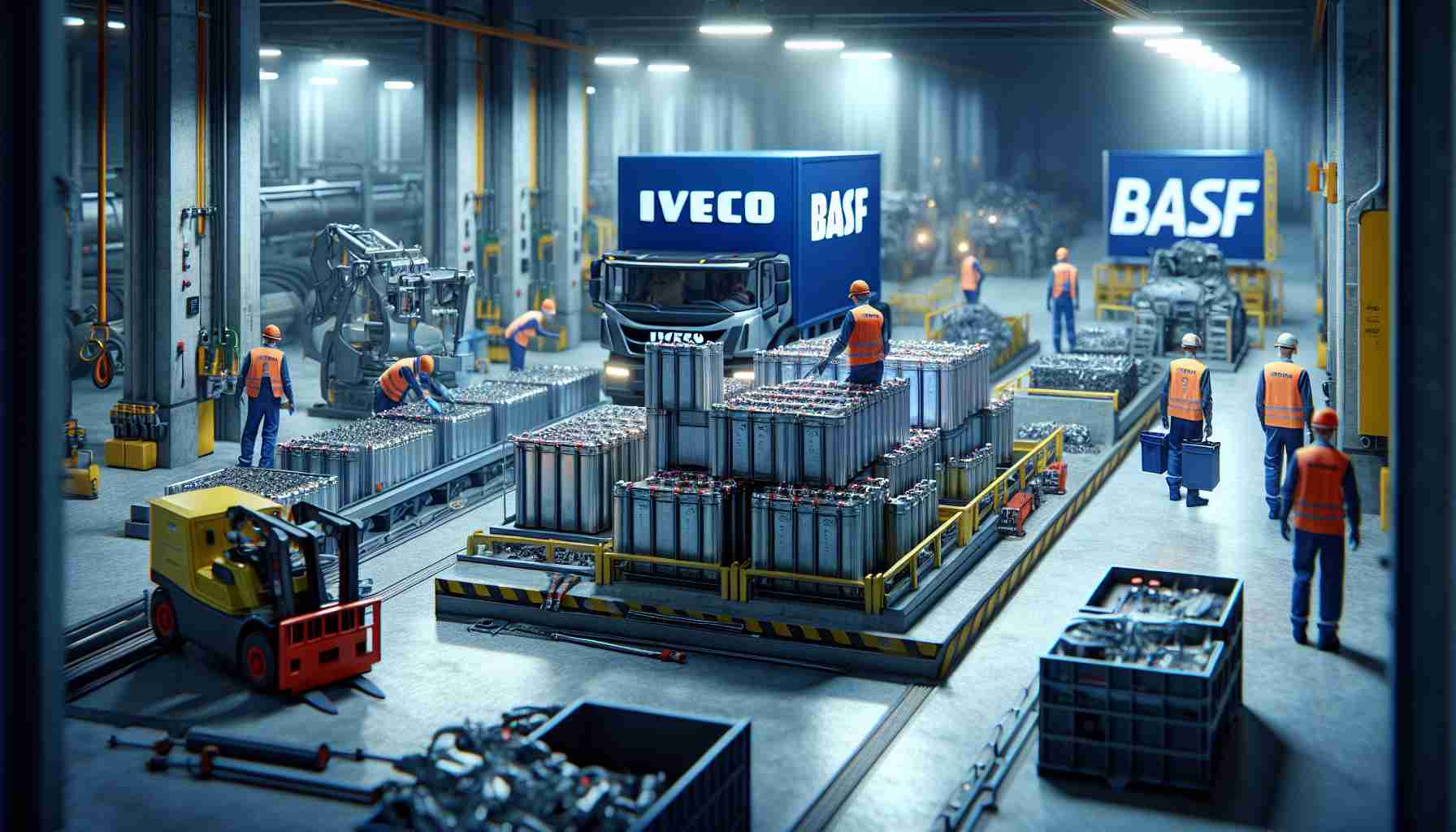Iveco has announced its collaboration with BASF to recycle lithium-ion batteries used in the electric vehicles of the group.
This partnership is part of a closed-loop economy strategy, which is based on the 4R Framework – repair, refurbish, remanufacture, and recycle, to increase the lifespan of batteries and reduce their overall impact on the environment. Iveco will ensure compliance with the extended producer responsibility policy, which holds manufacturers accountable for the entire lifecycle of their products, from design to end-of-life.
BASF, which recently opened the first joint production and battery recycling center in Europe in Schwarzheide, Germany, will organize and manage the entire recycling process.
The agreement includes the collection, packaging, transportation, and recycling of batteries in various European countries, including France, Germany, and the United Kingdom.
Once collected, the batteries will undergo mechanical processing to obtain black mass, from which nickel, cobalt, and lithium can be recovered and reused. By doing so, BASF will create a complete value chain for battery recycling in Europe, providing locally processed metals with a low carbon footprint for the battery industry.
Frequently Asked Questions:
1. What is the goal of this partnership?
– The goal is to increase the lifespan of batteries and reduce their environmental impact through repair, refurbishment, remanufacturing, and recycling.
2. How does Iveco ensure compliance with the extended producer responsibility policy?
– Iveco ensures compliance with the extended producer responsibility policy, which holds manufacturers accountable for the entire lifecycle of their products, from design to end-of-life.
3. What is BASF’s role in this agreement?
– BASF will organize and manage the entire recycling process for lithium-ion batteries. They recently opened the first joint production and battery recycling center in Germany.
4. In which countries will the collection, packaging, transportation, and recycling of batteries take place?
– The agreement includes the collection, packaging, transportation, and recycling of batteries in various European countries, including France, Germany, and the United Kingdom.
5. What resources can be recovered from battery processing?
– After mechanical processing, the black mass obtained from batteries can be used to recover nickel, cobalt, and lithium.
6. Will BASF create a complete value chain for battery recycling in Europe?
– Yes, BASF intends to create a complete value chain for battery recycling in Europe and provide locally processed metals with a low carbon footprint for the battery industry.
Definitions:
– Lithium-Ion Batteries: A type of batteries that utilize lithium-ion technology to store electrical energy. They are widely used in electric vehicles.
– Closed-Loop Economy: A strategy aimed at minimizing waste and increasing the utilization and recycling of resources to reduce negative environmental impact.
– Extended Producer Responsibility Policy: A policy that holds manufacturers responsible for the entire lifecycle of their products, from design to disposal.
– Nickel, Cobalt, Lithium: Resources that can be recovered from the processing of lithium-ion batteries.
Suggested Related Links:
– BASF Homepage
– Iveco Homepage
The source of the article is from the blog mgz.com.tw
